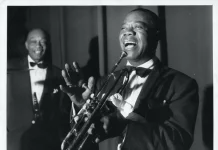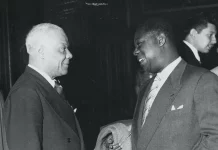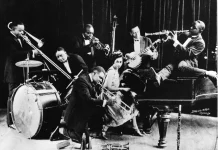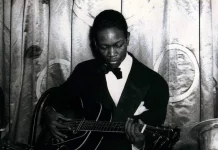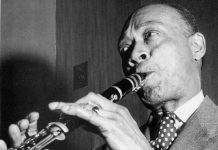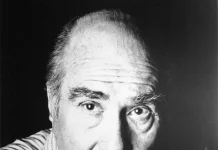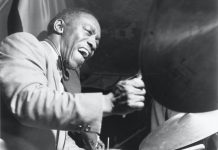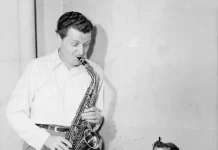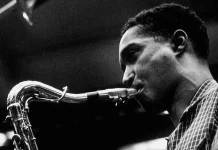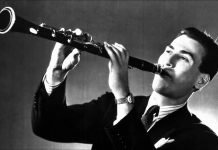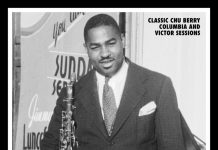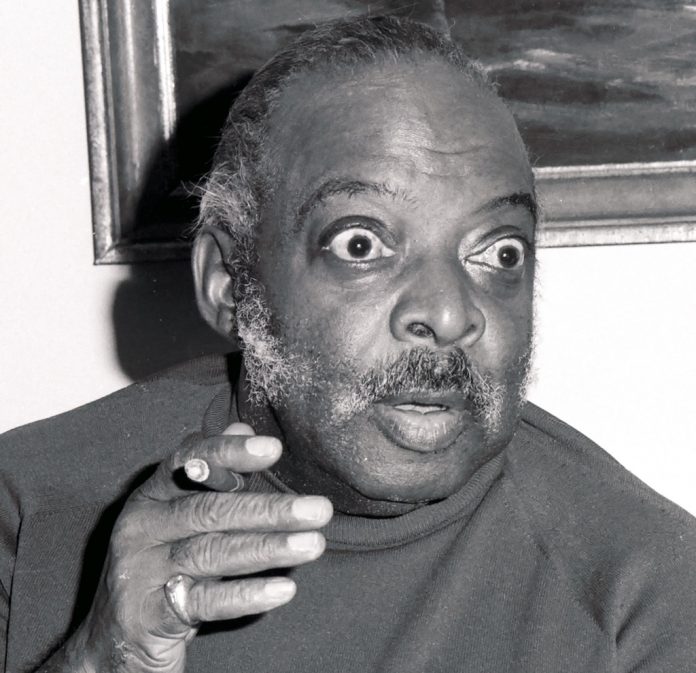
“I don’t like country music, but I don’t mean to denigrate those who do. And for those who like country music, denigrate means ‘put down’”. – Bob Newhart.
“I play all my country and western music backwards. Your lover returns, your dog comes back to life and you cease to be an alcoholic”. – the late Linda Smith.
“I can’t listen to too much Wagner. I start to get the urge to conquer Poland”. – Woody Allen.
(From The Oxford Dictionary of Humorous Quotations)
* * * * * * * *
Zoot Sims managed to remain one of the more placid sidemen in the Benny Goodman band. But he always found it difficult to get Benny to give him enough solos. One night he’d brought an apple to the job and it was on his music stand. Seeing it, Benny pointed to Zoot to take a solo. Zoot stood up and went to the mike. Benny then picked up the apple and started eating it, while Zoot kept on playing. Then when Benny had finished the apple he waved to Zoot to sit down.
In an earlier outbreak I mentioned that I should like to write about “Count Basie In London”, a misnomer that could equally well have related to a Basie trip up the Zambezi. The CD, one of Basie’s best, was recorded in Gothenburg, Sweden on 7 September 1956.
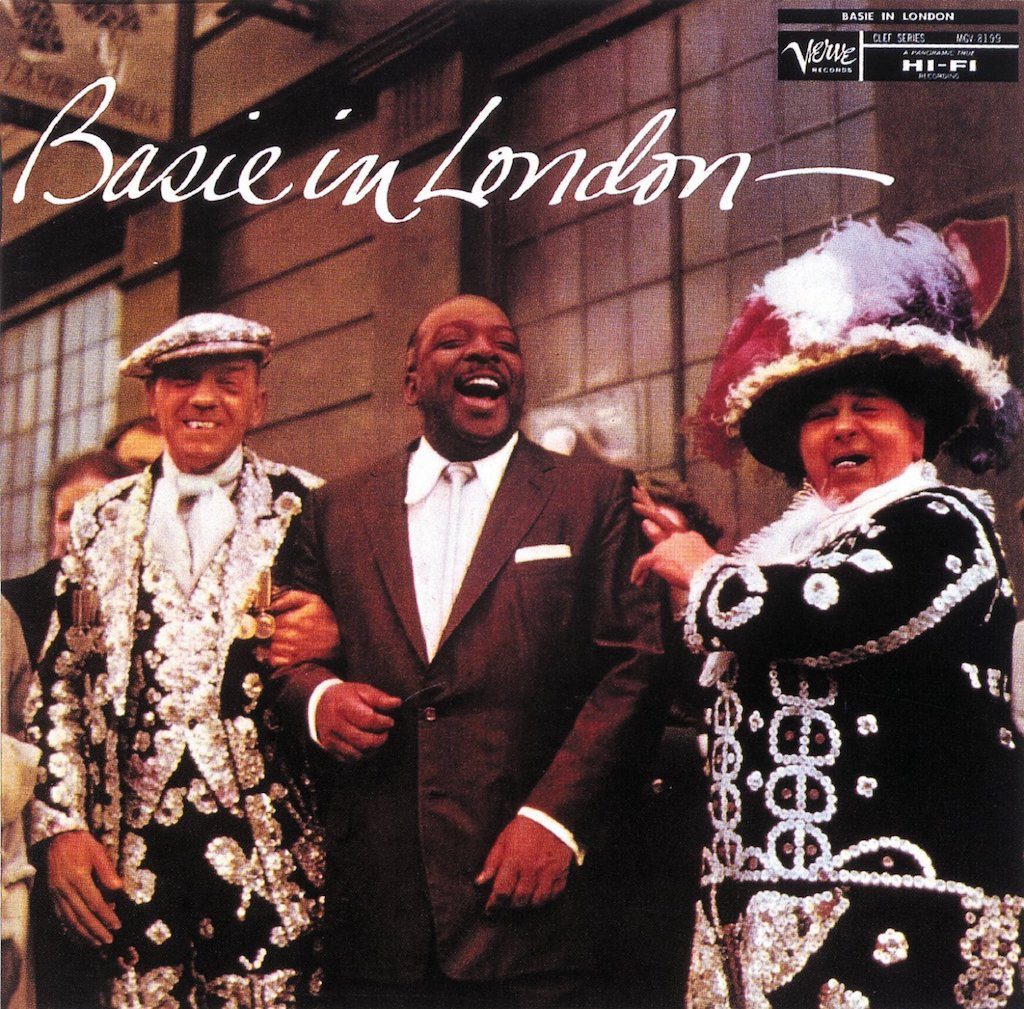
Alun Morgan said of it “This is greatness in orchestral jazz”. Indeed it is, for it is a catalogue of the best of the band’s library with every one of the soloists on top form. Frank Foster once confessed to me that at a Paris concert, which was recorded, the whole band was high. I’ve no such information about the Gothenburg evening, but certainly it was rare to hear all the musicians in such good humour. In the brass Joe Newman and Benny Powell touch their best, Frank Wess likewise on his feature number and the rhythm section together in joyous perfection.
The album has not been blessed with great liner-note writers. In its latest manifestation on the Poll Winners label (PWR27295) that job was given to an unhappy idiot called Alan Rice. Instead of creating words of wisdom for us, Mr Rice chooses to quote another writer in a quote that is longer than Mr Rice’s own contribution. The unhappy person quoted is named (I’ll bet he wished he wasn’t) as Michael G Nastos. So, what follows is Mr Nastos’s undoing, but surely Mr Rice, presumably paid to undertake his job, should have noticed that Mr Nastos was in the frog-spawn.
Mr Nastos notes as one of the high-spots of the album “the trombones taking over on Jumping At The Woodside”. Alas, the trombones never arrive. Another highlight suggested by our brave liner-note writer (remember, because a man is born in a stable, that does not make him a horse) is the “feature for Frank Foster, Flute Juice”. Frank Foster played clarinet, alto and tenor, arranged and composed prolifically but in all the years that I knew him, from 1956 until his death in 2011 he never wielded a flute in anger, although half an idiot’s ear would indeed confirm that Flute Juice is, give or take a bar or two, full of flute. But not the non-existent flute of Mr Foster. If I knew what it meant I would argue with the Nastos reference to “the low-key sonance of Shiny Stockings” and I’m not crazy about “the erudite, deep-throated singer on a choogling Alright, Okay, You Win”. There’s a technical analysis of The Comeback, “where Williams declares his return to his baby over a stairstep construct”.
The concert drew 16 numbers from more than twice that amount recorded at the two houses that night. Poll Winners have added four Basie tracks from a Basie broadcast later that year.
* * * * * * * *
Sonny Russo’s grandmother answered the phone when Gigi Gryce called him. When Sonny arrived home she told him “Jesus Christ called you”.
On another day she told Sonny that he was to ring Mr Mondello. Sonny called Toots, who had no idea what was going on. It transpired that the call had come from Mundell Lowe.
* * * * * * * *
The Blue Note quintets with Art Hodes are arson in the extreme and by anyone else’s standards are classics, but for Sidney it was just another day at the office
Bob Wilber was very young when he toured over here with Eddie Condon’s band and Lyttelton’s group in 1957. At that time he was always eager to talk about jazz earnestly and happily with anyone. At Liverpool he was engaged by an enthusiast intent on such discussion and the two were deep in conversation about the comparative merits or lack of them between Bessie Smith and Ma Rainey. “Hey, Wilber”, said a sceptical Eddie Condon, “Stop making like a jazz fan”.
As always seemed to be the case on such tours, there was an edge between two practitioners of the same horns.
“Whenever I hear you play”, Wild Bill told Humph, “I hear every trumpet player in the world”.
“All except one, Bill”, answered Humph. “All except one”.
I’ve recently transferred my Mosaic Bechet Blue Note set from LP to CD (I copied them for Wally Fawkes, but he’d already got them on commercial CDs, which, of course, have much better quality.)
Wild Bill was at his most warlike in 1945 when he and Sidney crossed cutlasses for the first time. Although they made only a large handful of records together, they repeatedly collided in broadcasts and concerts.
Sidney was a fearsome man, as I know to my cost, but Bill never flinched in the face of what was perhaps the most self-assured man in jazz. The Blue Note quintets with Art Hodes are arson in the extreme and by anyone else’s standards are classics, but for Sidney it was just another day at the office. Blue Note asked them back for more, and the standards were maintained. A trombonist new to me, Ray Diehl, was added, and didn’t sound at all bad. What happened to him?
Bill was at his best, but I suppose Sidney out-blew him in the end. But the moral victory might have been Bill’s, for Sidney escaped to France. They were fed up with his god-like behaviour in New York, but the French were looking for one to lead them against the English. In the end he fetched up with me. He left the room before I could give in.

